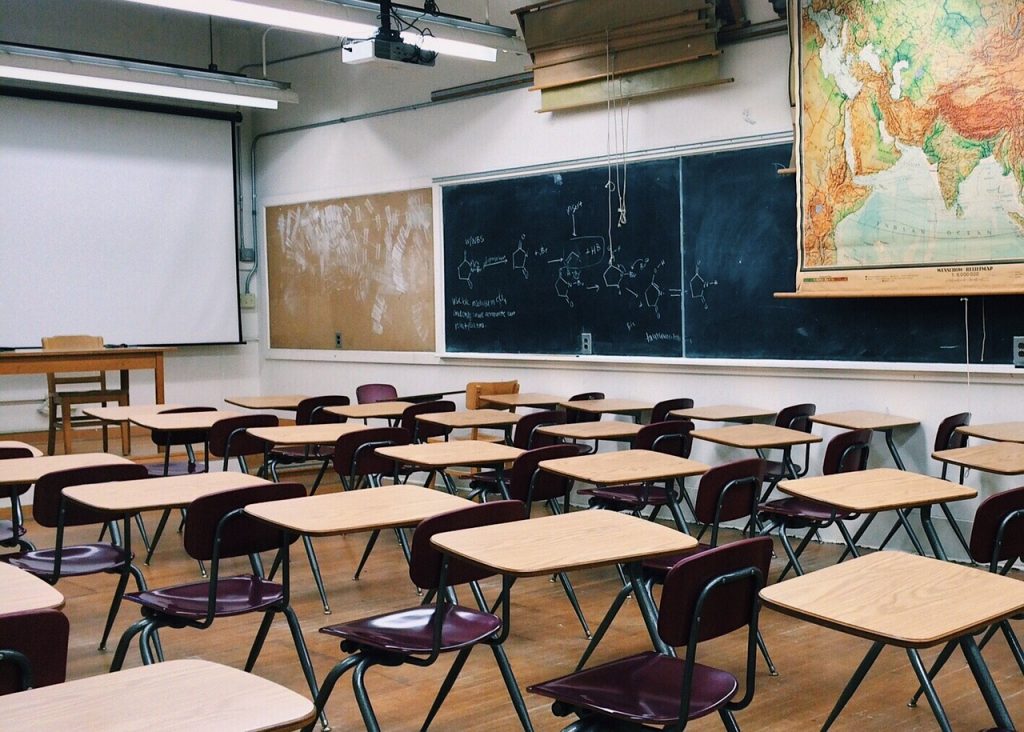
“Our modern system is heavily based on mass industrialization”
When it comes to schooling itself, having dyslexia often feels like you do twice the work for half the effect. Teachers, parents, tutors, and fellow students will try helping, but they usually give up in frustration once their tried-and-true standardized tactics fail. They even go as far as to blame the student and their brain rather than focusing that blame on their lack of patience and inability to tailor teaching methods. To be fair, most teachers were not taught with adaptability at the forefront but with the mass standardization of educational concepts that ignore differences.[1] This perpetual and frustrating cycle continues for every new subject introduced. It’s embarrassing, tiring, and, overall, frustratingly unfair.
We often forget that despite the human species being hundreds of thousands of years old, our modern school system has only been around for less than two hundred years.1 [2] Even then, our modern system is heavily based on mass industrialization, a modern concept to our ancient species.1 This industrialized schooling thrives on standardization and memorization, two factors that naturally disadvantage dyslexic students.1 These educational factors, paired with the fact that mass literacy of the populace has only been achieved in the last hundred years, mean that humans have evolved without literacy and industrial schooling for hundreds of thousands of years.1 It is no wonder people with dyslexia struggle; we as a society are still ironing out the kinks of a modern invention.
There is early evidence through studies that shows that Dyslexic students who learn Ancient Greek can improve their reading and writing skills.[3] [4] I would argue that this could show that for hundreds of years before industrial education, dyslexic people may have been able to thrive on their natural ability to think and process differently with a different language. They may have become philosophers, inventors, artists, bakers, farmers, and labourers contributing to the significant development of humanity, all without the need for our modern approach to literacy and maths. It is disheartening that their descendants struggle to learn in a system never built with their brains in mind.
Instead of realizing this unfairness, we pressure people with dyslexia to adapt to our poorly planned invention and shame them when they cannot satisfy conformity and categorization. Education is now taught and set up as if it were an industrial assembly line by processing and advancing children once they have met their metrics like a factory part.1
I would go as far as to argue that the diagnosing of dyslexia itself is another way to try to categorize and pressure conformity rather than instinctively taking an individualistic approach regardless of designation. Expanding on this notion, I think the label of dyslexia can and often is used as an excuse for why a student cannot meet standardized quotas rather than blaming the system. I would also argue that the current educational system is, unfortunately, moulding and training kids to become cogs in an economic machine for the benefit of others rather than happy individuals and innovators, but that topic is for another day.
With all this in mind, I think it is common for parents, teachers, and students to cling to hope that things will improve for the dyslexic student. They prioritize repetition and memorization, hoping things will improve. This approach is oblivious that this system was not built for all humans’ unique strengths and weaknesses and that we cannot mass-produce humans as machine parts.1 I am not arguing for abolishing math and literacy; I am asking for an adaptation. However, this would most likely require a brand-new system with its own kinks to work out. What would that new system of education look like? I do not know, but I know someone out there will, maybe someone with knowledge of the issues plaguing the system through dyslexia. Hopefully, they are not disheartened enough by an ineffective educational system to want to try to fix it.
The author, Madison Mussio, has been diagnosed with Dyslexia since age 10. She could not read until age 11 and write until age 12. Her father also learnt to read and write at around the same age. Madison is also an ambassador for the non-profit school Fraser Academy, which helps students and the greater community manage and thrive with Dyslexia in Vancouver, British Columbia.
About the Author Madison Mussio
Feel Free to Connect with Madison on / Instagram / TikTok / LinkedIn / Facebook
References:
[1] “Our Education System is Losing Relevance. Here’s How to Unleash its Potential”, World Economic Forum, 2020
[2] “An Evolutionary Timeline of the Homo Sapiens” Smithsonian Magazine, 2021
[3] “Help For a Dyslexic Learner From an Unlikely Source: The Study of Ancient Greek” Literacy, 2006
[4] “New Research Shows That Ancient Greek Can cure Dyslexia” Greek City times, 2021
